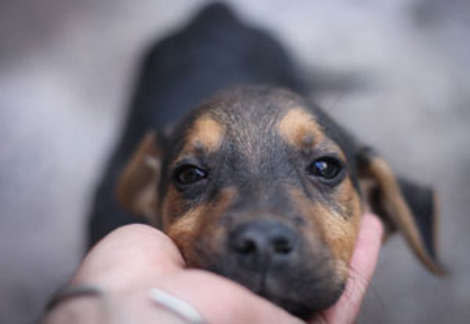Your Dog Likes the Way You Smell

Dogs' noses are thousands of times more sensitive than ours, but what scent will get your dog the most excited?
Your scent, according to researchers at Emory University.
Gregory Berns, director of Emory's Center for Neuropolicy, led a team of scientists to conduct the first brain-imaging study of dogs responding to biological odors.
The experiment involved 12 dogs of various breeds that had been trained to enter an MRI scanner while awake and unrestrained.
Also see: Do you know your dog breeds? Take the quiz
As their brains were scanned, the dogs were presented with five different scents on gauze pads. The scent samples came from the subject dog, a dog the subject hadn't met, a dog that lived in the same household, a human the subject had never met, and a human that lived in the dog's household.
All five scents elicited a similar response in the parts of dogs' brains involved in detecting smells.
However, the responses were much stronger for the scents of familiar humans. Getting a whiff of a familiar dog produced the next strongest brain response.
Also see: Do dogs really feel guilt?
"While we might expect that dogs should be highly tuned to the smell of other dogs, it seems that the reward response is reserved for their humans," Berns said in a news release. "Whether this is based on food, play, innate genetic predisposition or something else remains an area for future investigation."
Berns was surprised to find that dogs that had received service or therapy training showed greater activation in the caudate region of their brains than dogs that hadn't.
In humans, the caudate region is associated with decision-making, motivation and emotions.
Also see: Dogs have capacity for emotion
It's unclear if this difference is genetic or if it's a result of the dogs' training.
"We plan to do further research to determine whether we can use brain-imaging techniques to better identify dogs that are optimal to serve as companion animals for the disabled," Berns said.
